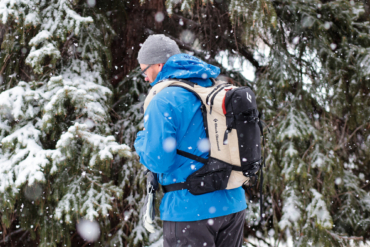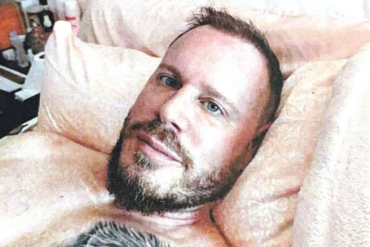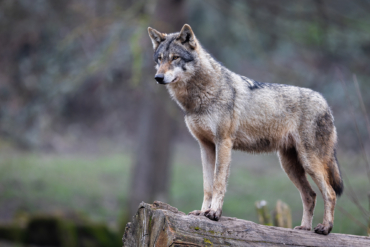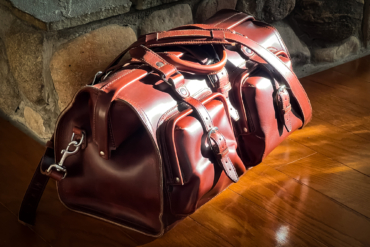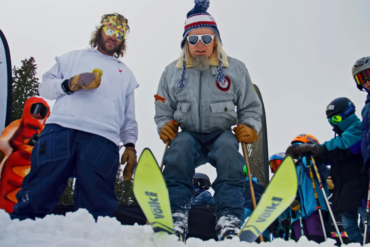Looking to my right, I see a ski patroller’s gloved hand reaching for a rope. A jolt of electricity shoots through my spine as the rope drops. The fresh, untouched lines in Boomerang Bowl are open for business. My ski mates and I join the mad dash for the fresh snow that only comes with a rope drop. The energy is palpable as whoops and screams of joy fill the high alpine air.
Moments later I’m floating through untouched Canadian powder that billows past my knees and shoots past my waist with each turn down the mountain. The clear blue skies are pierced by the jagged snowcapped peaks that surround the Lake Louise Ski Resort.
We cruise out of the bowl with giant grins plastered across our faces and then head back to the lift to do it all over again. It’s one of those waking dream moments that I experienced a lot of while skiing Banff National Park’s three resorts, dubbed the SkiBig3.
The SkiBig3
Within a couple hour’s drive of Calgary, Alberta, lie three world-class ski resorts: Mt. Norquay, Banff Sunshine, and Lake Louise. Each offers a different kind of terrain with unparalleled views of the massive mountains, glaciers, and lakes that fill the horizon as far as you can see.
Combined, these three Canadian mountains offer more than 7,700 acres of skiable terrain serviced by 29 lifts that feed into 362 runs of all levels. We spent the week skiing all three of the resorts, exploring everything from crisp groomers to steep chutes and powder-filled bowls. The hardest part was keeping our eyes on the skiing and not getting distracted by the jaw-dropping views that Banff offers.
The three resorts reside in Banff National Park, which is a UNESCO World Heritage Site. People may tend to think of Banff as a summer destination with its turquoise blue lakes and picturesque trails, but winter provides a landscape that is a paradise for snowsport enthusiasts.
Without further ado, here’s a quick guide to the SkiBig3.
1. Mt. Norquay

If you want to ski like a local, then Mt. Norquay is your spot. Located just outside of Banff, the high alpine mountain overlooks the town. While it’s the smallest of the three resorts, it has served as a training spot for World Cup and Olympic athletes since opening in 1926.
Don’t let its size fool you: Norquay offers both beginner and advanced terrain. Forty-four percent of the mountain is black runs, along with the only night skiing option in the national park. With a massive tube park, this is a family-friendly ski area and is often where the locals learn to ski or snowboard.
I spent the morning ripping down some steep groomers and drinking in the views of Mt. Rundle before traversing over to the North American Lift and skiing the soft corn snow in the chute. I also tested my legs on Lone Pine, which is a long mogul run with one lone pine tree in the middle of the run. And if you’d like, you can cap off the day with a pint and a bite to eat at the similarly named Lone Pine pub.

While Norquay is not the biggest ski area in the national park, it offers all levels of skiing just a few miles outside of Banff. The history and views in the area are second to none.
Short lift lines and long ski runs make Mt. Norquay a great winter or spring ski destination.
2. Banff Sunshine

Banff Sunshine is about a 15-minute drive from Banff and is serviced by a nearly 3-mile, eight-person gondola that transports skiers and snowboarders to the village area. The resort is made up of three major mountains — Goat’s Eye, Lookout, and Mt. Standish. The ski resort sits atop the Continental Divide and you float between Alberta and British Columbia at times.
The views from here are unreal. On a clear day, you can see Mt. Assiniboine, which stands at 11,870 feet and is dubbed the “Matterhorn of the Rockies.” A unique feature of Banff Sunshine is areas like Delirium Dive where people who have backcountry gear and training can access an area known as a Freeride Zone.
After skiing a few laps off of Lookout Mountain and trying to get a glimpse of Assiniboine peeking through the clouds, we headed off toward Mt. Standish, which offers a panoramic view of Monarch Mountain at 9,528 feet. We skied down and dropped into the Virgin Chutes, which is a spicy little run that keeps you on your toes.

Officially warmed up, it was time for Goat’s Eye Mountain for more challenging terrain. We skirted around the mountain toward the towering Eagles peaks that loomed large in front of us. Around the Farside chute, we turned our skis downhill and cut through the soft snow. It looked like a scene out of a Warren Miller film, as we skied down the massive face into a glade of trees. Rumor has it that you can see Goat’s Eye runs from an airplane when flying into Calgary from Vancouver.
As a reward for our hard turns, we retired to the historic Mad Trapper’s Public House, built in 1928, for some authentic poutine.
3. Lake Louise

Of the three resorts, Lake Louise Ski Resort is the largest in Canada with more than 4,000 acres. The resort overlooks Lake Louise and the famed Fairmont Chateau, which is a storybook view in the winter.
The resort has recently added the new West Bowl with 420 acres accessible by the new Summit Chair. This lift grants access to terrain off of the saddle of Whitethorn Mountain at 8,552 feet. Also for the 2022/2023 season, the Juniper Express Chair opened offering access to easier terrain for beginners off of this high-speed quad.
With fresh snow and the rope drop for the back bowls on this mountain, we spent our next morning skiing fresh powder laps in Boomerang Bowl and Paradise Bowl.
After refueling at Kuma Yama, an in-lodge sushi bar that delivers a unique experience with ramen bowls and sushi, we explored the rest of the mountain, checking out the terrain off of the Juniper Express Chair and the Grizzly Express Gondola.
The lower-angle terrain at Lake Louise is equally enjoyable, and there are ample tree and glade runs that you can dart in and out of to find little powder pockets keeping you on your toes.
How to Get There
Compared to skiing in some other countries, Canada is pretty easy to get to from the United States. The closest airport to Banff is in Calgary, located in the province of Alberta. Flying from Denver took me just over 2 hours, which is quicker than driving to some ski resorts in Colorado on the I-70.
While you can rent a car to drive the remaining hour or so to Banff, there are also a number of shuttle buses that will take you straight from the airport to Banff and drop you off at your hotel. I rode the Brewster Express from Calgary to Banff each way, which was easy and freed me up from driving to enjoy the scenery.
Once you are in town, the SkiBig3 has a free shuttle service that will take skiers and boarders to each resort and back to town daily.
Accommodations in Banff

Once you have arrived, there are some great lodging options. Banff is the main town in the national park that offers every service you need, including gear rentals and shops.
There are hotels throughout Banff to choose from. I stayed at the Banff Ptarmigan Inn. The ski shuttle picked me up each day out front, and the hotel is centrally located in Banff. I was able to walk anywhere in the downtown area easily. The mountain hotel also has ski lockers, restaurants, and a hot tub.
Canmore and Kananaskis also offer hotels and accommodations a bit further away from the ski resorts. If you want to stay on the mountain, Banff Sunshine offers the Sunshine Mountain Lodge. Located in the ski area village, it is the only ski-in/ski-out lodge in Banff.
Après-Ski
Banff knows how to après-ski in style. With breweries, distilleries, and some world-class dining options, there’s no lack of nightlife to check out in Banff.

If good beer is your go-to after a ski day, check out 3 Bears Brewery and Restaurant, which offers beer and pizza. There is also Banff Ave. Brewing Co., which is the original brewery in town. The brewery offers a pub, lodge, and taproom full of good food and beers.
If a maple rye old fashioned is more your speed, check out Park Distillery. The distillery in the heart of Banff offers free tours and paid tastings of its spirits, which include vodka, gin, and a maple rye. The distillery also has an impressive menu that pairs well with its drinks.
More Than Just Skiing

If you want to take a day off from skiing, there are plenty of fun activities to explore in Banff.
Snowshoeing is a fun winter activity that gets you out on some of the area’s majestic snow-covered trails. I spent an afternoon exploring the Lake Minnewanka area of the park with a guide from Radventures.
Or explore frozen waterfalls on the Johnson Canyon Icewalk. The scenic walk follows an elevated railed path through the canyon to a series of partially frozen waterfalls. Consider joining Discover Banff Tour on a night walk through the canyon for a special experience.
If walking even sounds like too much effort, then there’s the Banff Gondola that runs through the Canadian Rockies to the summit of Sulphur Mountain. The summit building has restaurants, interactive exhibits, and a 360-degree view of Banff from the observation deck. (You can see nearby peaks like Mt. Norquay and Mt. Bourgeau from here.) The gondola also operates at night with a Nightrise experience.
Regardless of what you decide to do in Banff, the views alone are worth the visit. The Canadian Rockies, while not as high as the U.S. and Colorado Rockies, still have dramatic and breathtaking views.
SkiBig3 Mountain Stats
Mt. Norquay
- Total acreage: 190 acres
- Annual average snowfall: 120″
- Vertical drop: 1,650′
- Base area elevation: 5,500′
- Number of lifts: 5
Banff Sunshine
- Total acreage: 3,358 acres
- Annual average snowfall: 364″
- Vertical drop: 3,514′
- Base area elevation: 5,440′
- Number of lifts: 12
Lake Louise
- Total acreage: 4,200 acres
- Annual average snowfall: 180″
- Vertical drop: 3,250′
- Base area elevation: 5,400′
- Number of lifts: 11



